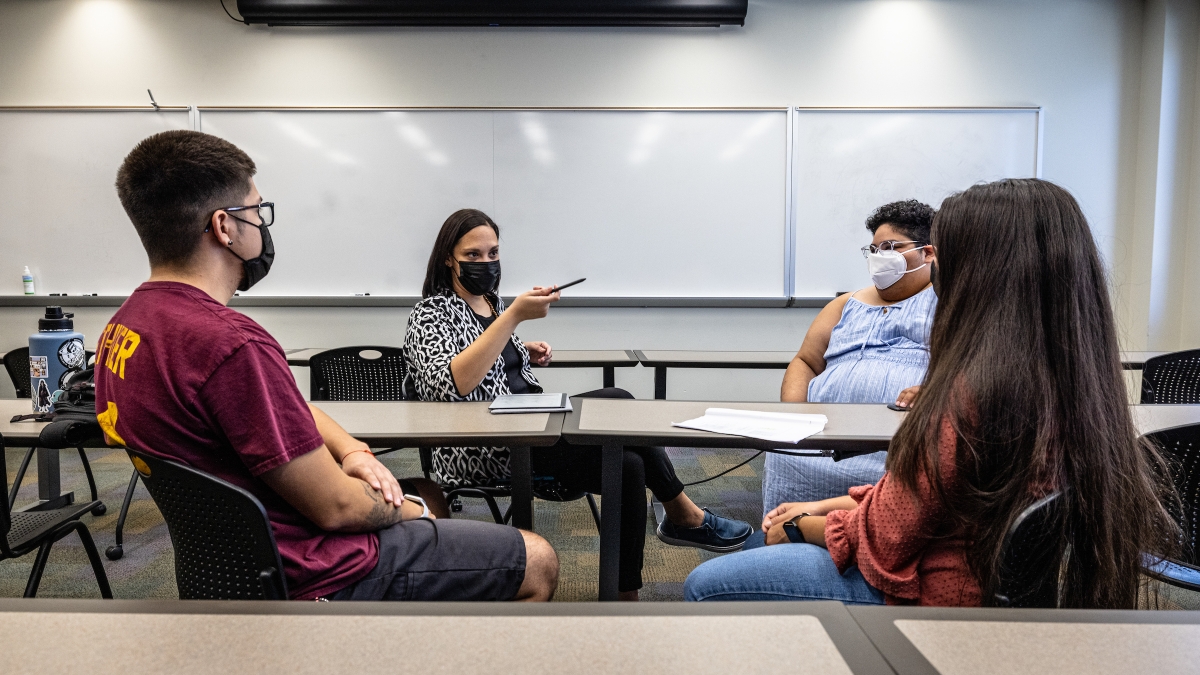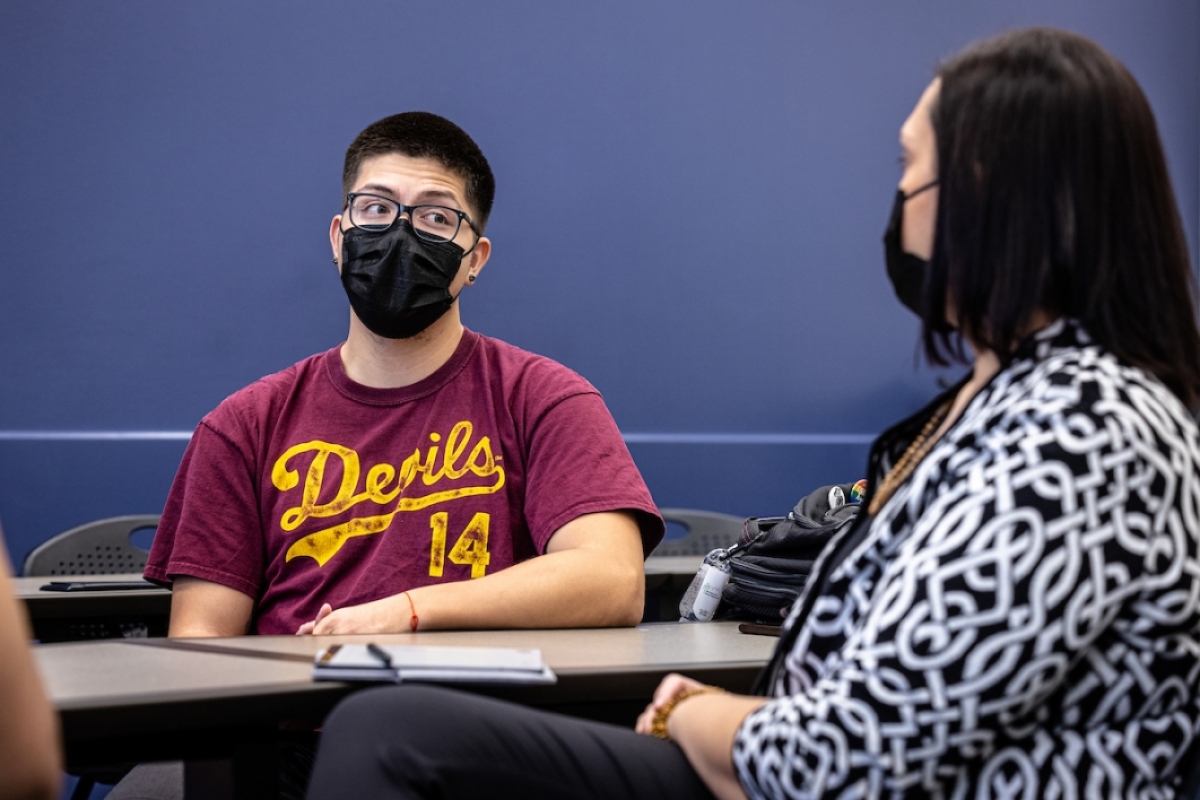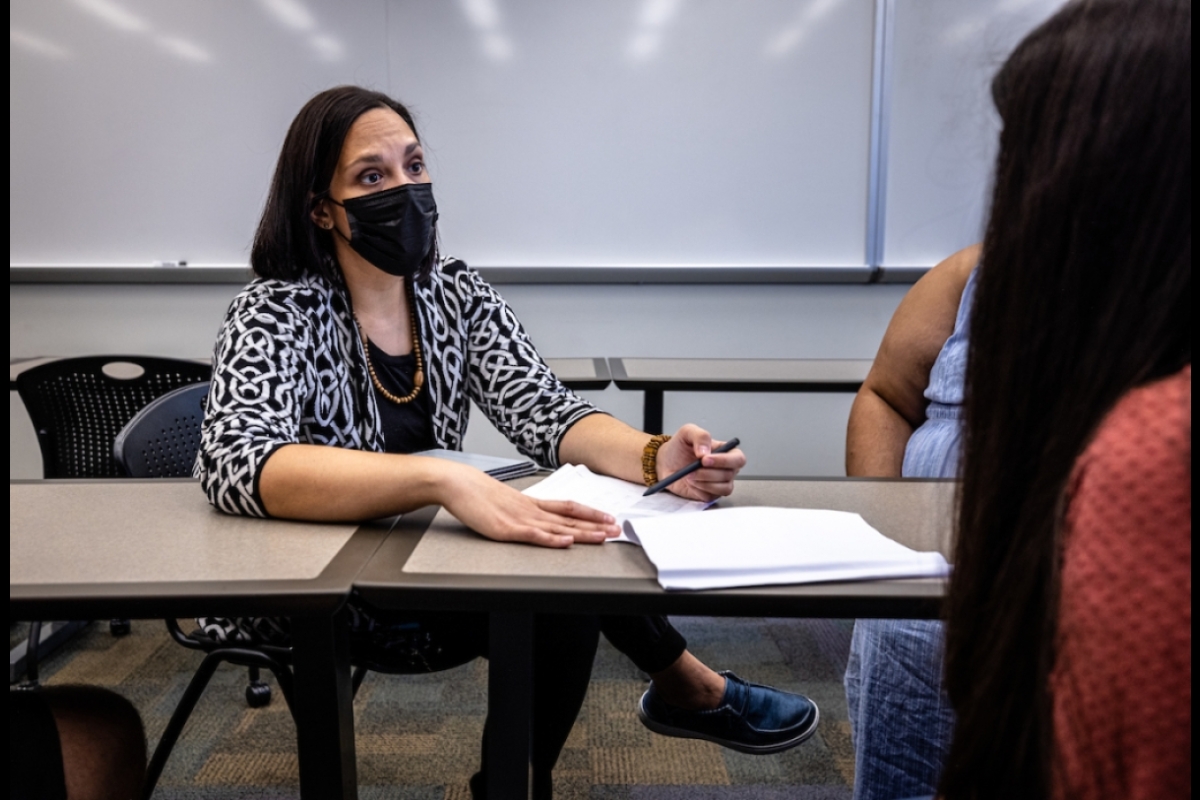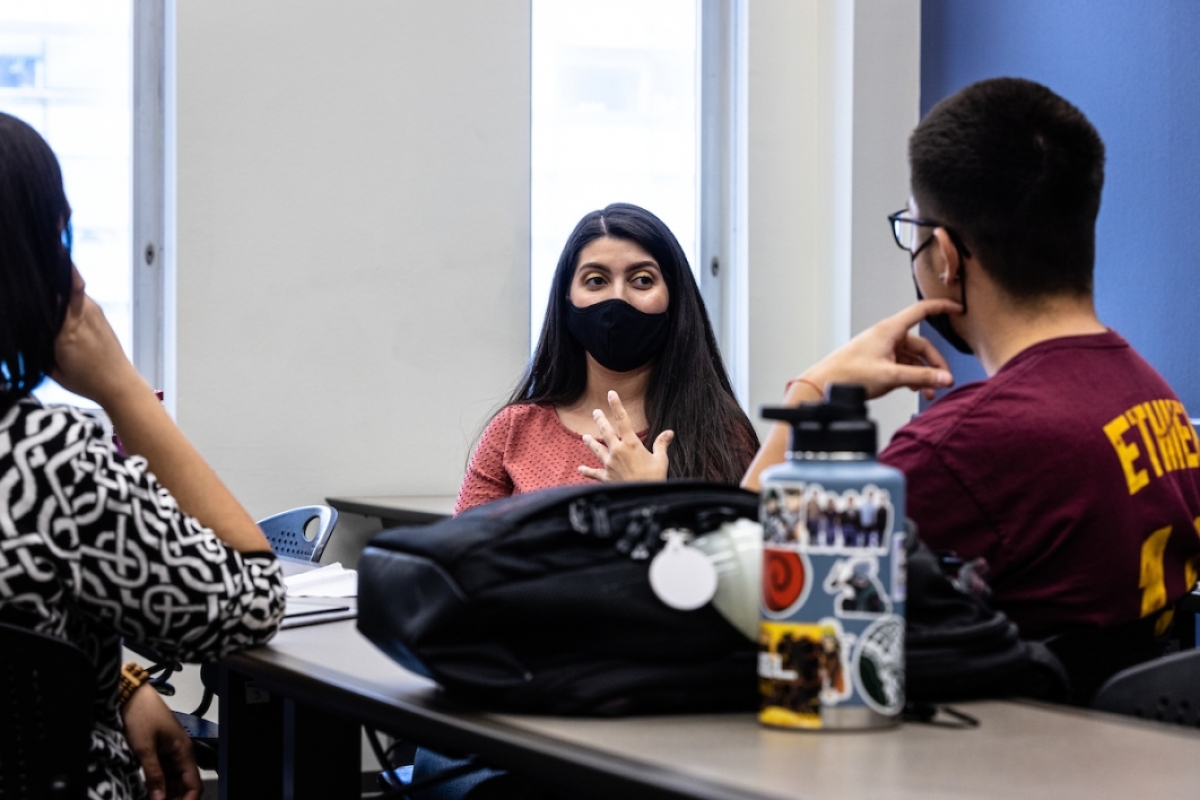Latino psychology lab gives ASU students research experience, unique connections

Between 2010 and 2020, enrollment at Hispanic-serving institutions — colleges or universities with a student population that is at least 25% Hispanic — grew by 94% in the U.S. At Arizona State University, Hispanic enrollment increased 51% for combined on-campus and online students from fall 2016 to fall 2020.
While the overall boom in Hispanic enrollment these numbers represent is encouraging, many Hispanic students still struggle to find representation within the various fields of academia. It’s an experience Cristalís Capielo, an assistant professor of counseling and counseling psychology at ASU’s College of Integrative Sciences and Arts, knows intimately.
After moving to Florida from her native Puerto Rico in 1998, Capielo and her family faced a number of challenges adapting to their new home, including navigating an education system that was ill-equipped to meet her and her sister’s needs, despite the fact that they were U.S. citizens.
Capielo wanted to know why. In her quest to find out, she ended up at the University of Georgia, where she met Professor Edward Anthony Delgado-Romero, who became her mentor. Under his leadership, Capielo and a number of fellow Latino students formed an informal research group.
“It was a space where we could be ourselves and where we could support each other,” Capielo said. “A space where we didn’t have to explain our unique challenges and where others found worth in our research.”
When she came to ASU in 2016, Capielo knew she wanted to create something like that here. It started slowly, with one student, then two — today, the PLENA (Psicología Latinx en Accíon) Lab has grown to 15 students, representing undergraduate, master’s and doctoral students.
As was true of Capielo’s group at the University of Georgia, the PLENA Lab serves as a space for psychology students researching issues of multiculturalism and Latino psychology to network, collaborate and support one another.
Loiza DeJesus, a first-year PhD student in counseling psychology, first learned about Capielo, her work and the PLENA Lab at a National LatinxLatinx is a gender-neutral replacement for Latino preferred by some individuals and groups. Psychological Association conference a few years ago.
“I spent like two years doing everything that I could to get into this lab,” said DeJesus, who is also of Puerto Rican descent but hails from Chicago, where she received her master’s degree from Roosevelt University.
“I was very specifically looking for somebody doing work with Puerto Ricans, which is very rare. I could probably count on one hand the number of Puerto Ricans in the field who are doing this kind of work. But Latinx psychology researchers in general are still incredibly rare.”
The nature of Capielo’s research stems from her own experience.
“When my family moved here, we thought that as Puerto Ricans, because we were U.S. citizens, it would be easy to adjust,” Capielo said. “We thought my parents would be able to find jobs commensurate to their education and experience, and that my sister and I would transition smoothly into school. It was not that way.”
Instead, Capielo recalled, they experienced racism, difficulty finding employment and navigating the school system, and a host of psychological issues as a result. As she began to meet other Latino immigrants whose stories were similar to hers, she became determined to get to the root of the cause.
“What I kept finding in my own data and learning from other scholars is that these persistent health disparities — and as a result, a person’s overall well-being — are inextricably connected to socio-political factors,” Capielo said. “For example, mixed documentation status within families is a huge determinant of access, which in turn is a determinant of health. So I’m trying to look beyond the cultural differences to what are the systems — political, legal, education, etc. — that allow for these persistent health disparities in Latinx communities.”
One of Capielo’s recent studies, for which DeJesus audited data, sought to understand how colonial logistics, or discriminatory ideas based on race, influence the identity development of Puerto Ricans who migrated to Arizona and Florida. For her thesis, DeJesus hopes to replicate the study with a different population: second- and third-generation Puerto Rican youth in her hometown of Chicago.
Capeilo encourages students in the PLENA Lab to pursue their own research interests but also understands that many haven’t had any research experience at all, and often invites them to contribute to her current projects.
“My job as an adviser to them goes beyond creating a space where they feel supported. I also provide guidance,” she said. “I help them learn about academic writing and how to deal with rejection and integrate feedback to make their work better. I love seeing their confidence in themselves improve and how that is reflected in their own work.”
Every Monday, Capielo meets with the PLENA Lab students for progress updates.
“The first thing we do is ask for celebrations,” she said. “What are we celebrating together? What were you able to accomplish? It helps them to be accountable and set realistic goals for the week, but it’s also about spending a bit of time supporting each other and normalizing that grad school can be difficult, especially if you happen to also be a member of a minority group. Because that comes with additional, very unique stressors.”
Second-year counseling master’s student Leo Covarrubias said having that support has been invaluable.
“There’s definitely a lack of representation of students who, you know, look like us or have names like us in the field,” he said.
Covarrubias and fellow second-year counseling master’s student Lisa Gutierrez, who are both of Mexican descent, attest they and other Latino students in their cohort are among the minority.
“So that, and being a first-generation student and coming from a small town … the imposter syndrome was so big,” Gutierrez said. “But Cristalís just kind of validated me and gave me a reminder, like, hey, you belong here, and she's just given us the inspiration and the power and the drive to continue on.”
For Capielo, it’s all in a day’s work.
“This is what I saw my mentor do,” she said. “He’s the reason I’m here; he saw potential in me and he gave me an opportunity. I see it as my responsibility to continue that and give as many opportunities to students as I can.”
Top photo: ASU Assistant Professor Cristalís Capielo meets with students in the PLENA Lab. Photo by Charlie Leight/ASU News
More Science and technology

Indigenous geneticists build unprecedented research community at ASU
When Krystal Tsosie (Diné) was an undergraduate at Arizona State University, there were no Indigenous faculty she could look to in any science department. In 2022, after getting her PhD in genomics…

Pioneering professor of cultural evolution pens essays for leading academic journals
When Robert Boyd wrote his 1985 book “Culture and the Evolutionary Process,” cultural evolution was not considered a true scientific topic. But over the past half-century, human culture and cultural…

Lucy's lasting legacy: Donald Johanson reflects on the discovery of a lifetime
Fifty years ago, in the dusty hills of Hadar, Ethiopia, a young paleoanthropologist, Donald Johanson, discovered what would become one of the most famous fossil skeletons of our lifetime — the 3.2…


